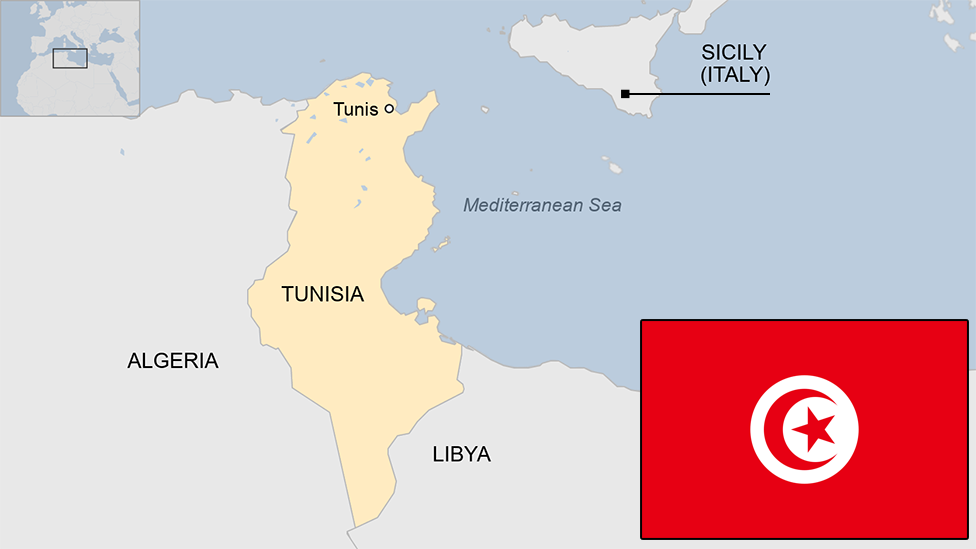Tunisia youths warned over riots amid Covid curfew
- Published
Security forces responded with tear gas and water cannon as crowds of mainly young demonstrators gathered
Protesters who broke a coronavirus curfew to continue riots for a fifth night have been warned by Tunisia's prime minister to stop their violence.
More than 600 people, mainly between the ages of 14 and 15, have already been arrested after police clashes.
Prime Minister Hichem Mechichi acknowledged their anger about a range of economic and social hardships.
"The crisis is real... but we reject chaos and will confront that with the power of the law."
In a televised speech, Mr Mechichi appealed to the protesters to stop the looting and the vandalism: "Your voices are heard, your anger is legitimate, and my role and the government's role is to work on realising your demands."
Tunisia faces severe economic problems and a third of its young people are unemployed.
The economic crisis has worsened under the pandemic - and a night-time curfew has been in place since October.
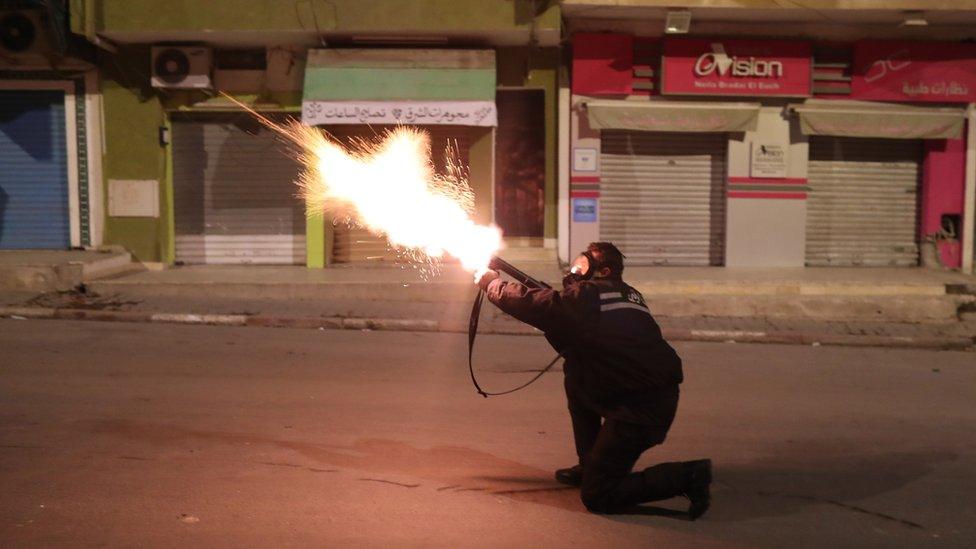
Amnesty International has criticised the police's excessive use of force
The unrest came amid a four-day national lockdown to stem the spread of Covid-19, which also coincided with the 10th anniversary of the revolution that ousted long-time leader Zine al-Abedine Ben Ali, ushered in democracy and triggered the Arab Spring revolts across the region.
The riots have taken place mainly in densely populated and underprivileged areas, where the relationship between young people and the police is historically tense, the BBC's Rana Jawad reports from the capital, Tunis.
Amnesty International has criticised the police's excessive use of force in dealing with the protests.

Analysis: BBC's Rana Jawad, BBC News, Tunis
Bouts of civil unrest in Tunisia are not new, but with each passing year, frustrations deepen over an ever-growing list of everything that appears wrong to Tunisians - from the ailing economy to the lack of deeper reforms and development.
Restrictive health measures to combat the spread of Covid-19 has also deepened the crisis and heightened frustrations, leaving many here in greater uncertainty over how to make ends meet.
Days of protests in several parts of the country were addressed by the prime minister in a six-minute speech on state TV. He appeared to temper his stern warnings against further chaos by acknowledging the general "legitimate anger" brought on by the economic crisis.
Tunisians have not shied away from expressing their discontent or ills since 2011, but every year seems to end or begin with unfulfilled promises by successive governments to improve the country's state of affairs or prospects for better livelihoods.

The night-time clashes, which began last Friday, have been followed this week by small day-time gatherings in capital, where activists have called for the release of those arrested.
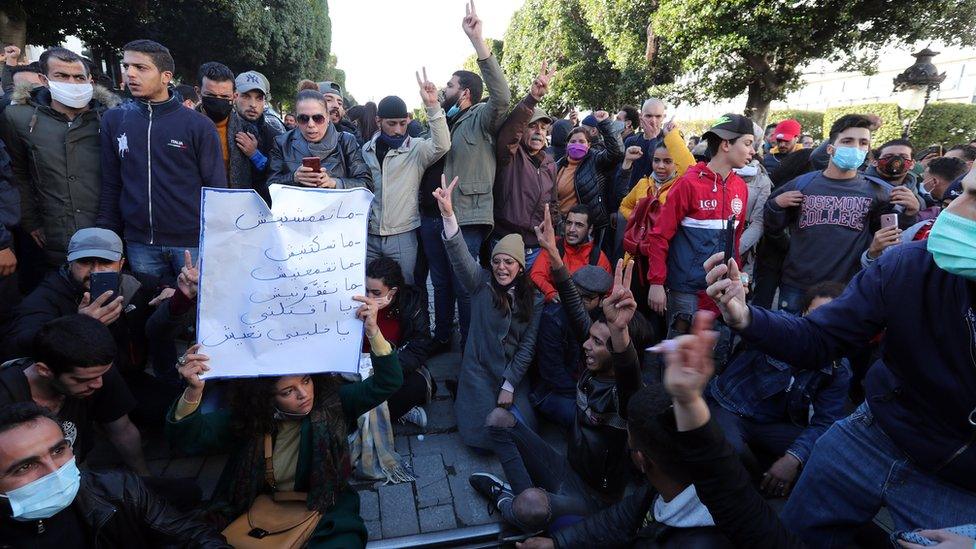
Day-time gatherings this week have seen activists calling for those arrested to be freed
Some there revived chants from the 2011 revolution, calling for regime change.
Many Tunisians have lost faith in their elected politicians given the economic downturn of recent years, our reporter says.
Mr Mechichi, who was appointed six months ago, announced a sweeping reshuffle to his cabinet over the weekend, which still needs to be approved by parliament.
In his speech he promised to "put in place an initiative" to allow young people's voices and suggestions to be heard.
The North African nation's economy shrank by 9% in 2020 and consumer prices have risen sharply.
Tunisia's key tourism industry has been particularly badly hit by the pandemic.
Related topics
- Published18 October 2019
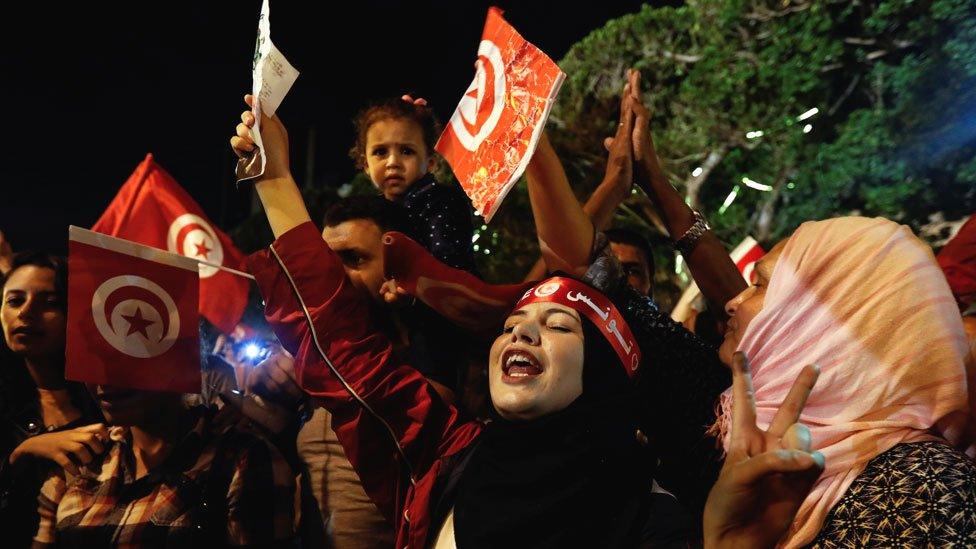
- Published3 April 2020
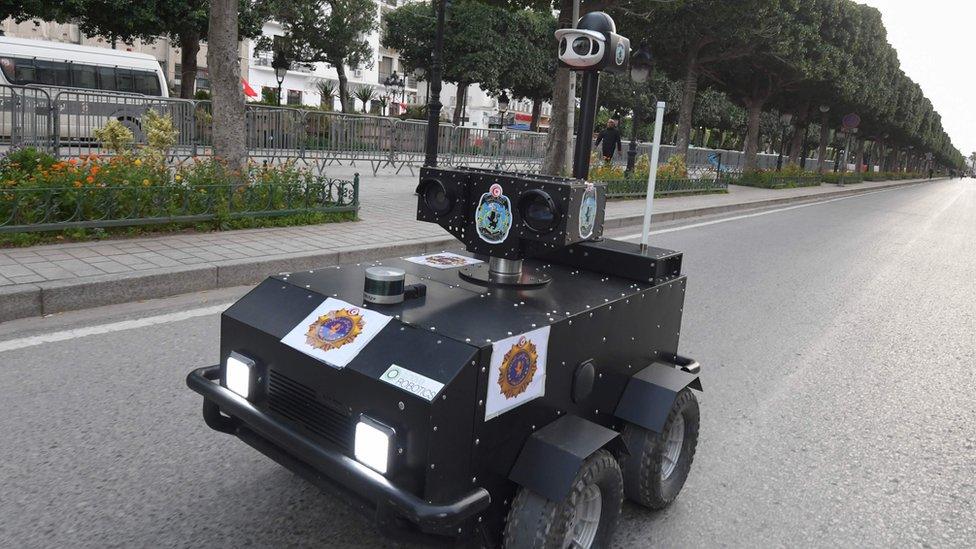
- Published19 September 2019
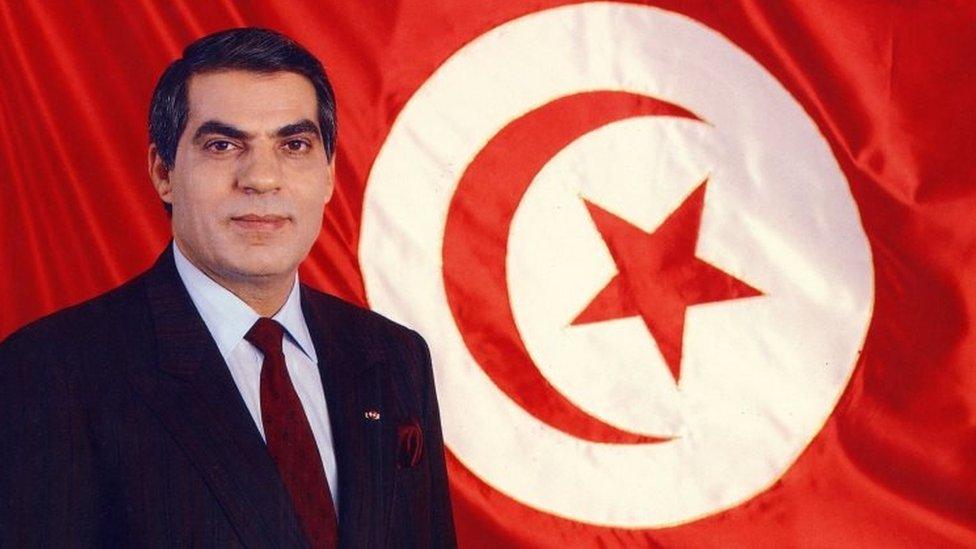
- Published9 October 2024
